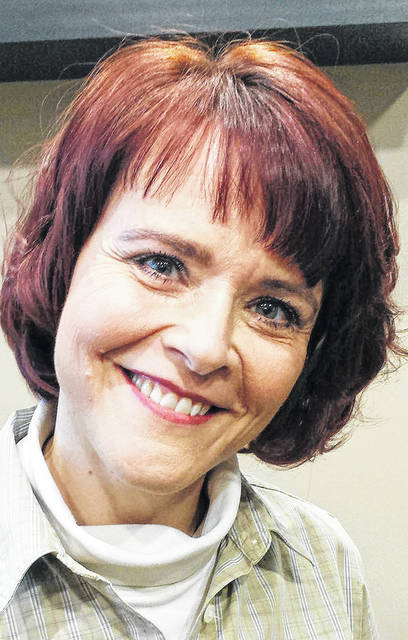
I have a confession to make. I cringe every time I hear the word crazy. My confidence plummets to the soles of my shoes. A wave of shame overtakes me. I am whisked back in time to the behavioral health unit. As you walk off the psych ward, you think, “I guess I am one of the crazies now.”
As a woman, I felt neutered. Who could love somebody like me?
I psychologically wore a mantle of shame everywhere, apologizing for taking up space and breathing air.
As Terri Cheney writes in “Modern Madness: An Owner’s Manual”: “Self-doubt is poisonous, but when it spirals down into self-stigma, it can be deadly. Whole organizations are devoted to fighting stigma, but it’s very hard to fight our own selves… When people question my bipolar disorder, they trample my reality. Even when I know they’re wrong, it sets off a chain reaction of confusion in me. My self-confidence begins to crumble as I question my own veracity and my hard-earned belief in my illness.”
Due to COVID-19, everyone is wrestling with mental health issues. Children are particularly vulnerable as they cannot articulate their feelings and do not necessarily understand the changes around them.
“In the younger students, we are seeing kids worry about the well-being of their family members. Many children are turning into little caretakers. They are wanting to make sure everybody is healthy,” explained Robin Glenn, founder of BASE Education. “Some have taken their parents’ temperatures, or they have begun to play veterinarians on their own pets and trying to fix them. The important thing is to have conversations with them, reassure them that their world is stable. Developmentally, they can’t handle the pressure of needing to feel like a caretaker. Give them a secure place to express their feelings. Lastly, if at all possible, keep them on their routines. Kids thrive in routines under normal circumstances, now more than ever, they need that consistency.”
Managing your mental illness does not make you crazy or mentally deranged, especially as manifested in a wild or aggressive way. Managing your mental health makes you a warrior. People like me must endure “medical Russian roulette” to get the right medications. “It’s mind-boggling, and you need an advanced mixology degree to prepare the perfect cocktail, which is only arrived at by months, sometimes years, of trial and error and constant, ongoing tweaking,” as Cheney writes.
What gives me the strength to get out of bed every morning despite how my culture views me? My faith. The Bible tells me God loves me and has a purpose for my life. First, I am fearfully and wonderfully made.
“For you created my inmost being; you knit me together in my mother’s womb. I praise you because I am fearfully and wonderfully made; your works are wonderful, I know that full well,” Psalm 139:13-14.
Second, God has a plan for my life. “For I know the plans I have for you,” declares the Lord, “plans to prosper you and not to harm you, plans to give you hope and a future,” Jeremiah 29:11.
Third, God treasures me. “But we have this treasure in clay jars, so that it may be made clear that this extraordinary power belongs to God and does not come from us,” 2 Corinthians 4:7.
Finally, I can be open about my mental illness struggles because God is in control. “But he said to me, ‘My grace is sufficient for you, for my power is perfected in weakness.’ Therefore, I will most gladly boast all the more about my weaknesses, so that Christ’s power may reside in me,” 2 Corinthians 12:9.
Apparently, I am not alone.
“In one of our papers, we did find that people who are regularly engaging in activities around faith and worship were experiencing less psychological distress,” commented Dr. Johannes Thrul, assistant professor at the Johns Hopkins Bloomberg School of Public Health. “Activities around worship or faith, when taken with the appropriate COVID safety precautions, can help people stay grounded, and not get carried away by fear and anxiety. Faith is a community-building mechanism as well.”
Dr. Brene Brown has spent the past two decades studying courage, vulnerability, shame and empathy. She’s the author of five No. 1 New York Times bestsellers According to Brown, “Vulnerability is not winning or losing, it’s having the courage to show up and be seen when we have no control over the outcome. Vulnerability is not weakness, it’s our greatest measure of courage… People who wade into discomfort and vulnerability and tell the truth about their stories are the real badasses.”
If you are wrestling with loneliness, depression, or suicidal thoughts due to your life circumstances or COVID, please know that you are not alone. Reach out for help. I am living proof that there is life after a mental illness diagnosis. Getting help for your mental health does not make you weak. It makes you a mental health warrior. Please join me as we change history when it comes to mental illness.
Danei Edelen is the founder and president for the NAMI Brown County Ohio affiliate. She is a mental health advocate for the Brown County Board of Mental Health & Addiction Services. You can contact her at [email protected] or 513-436-0010.


